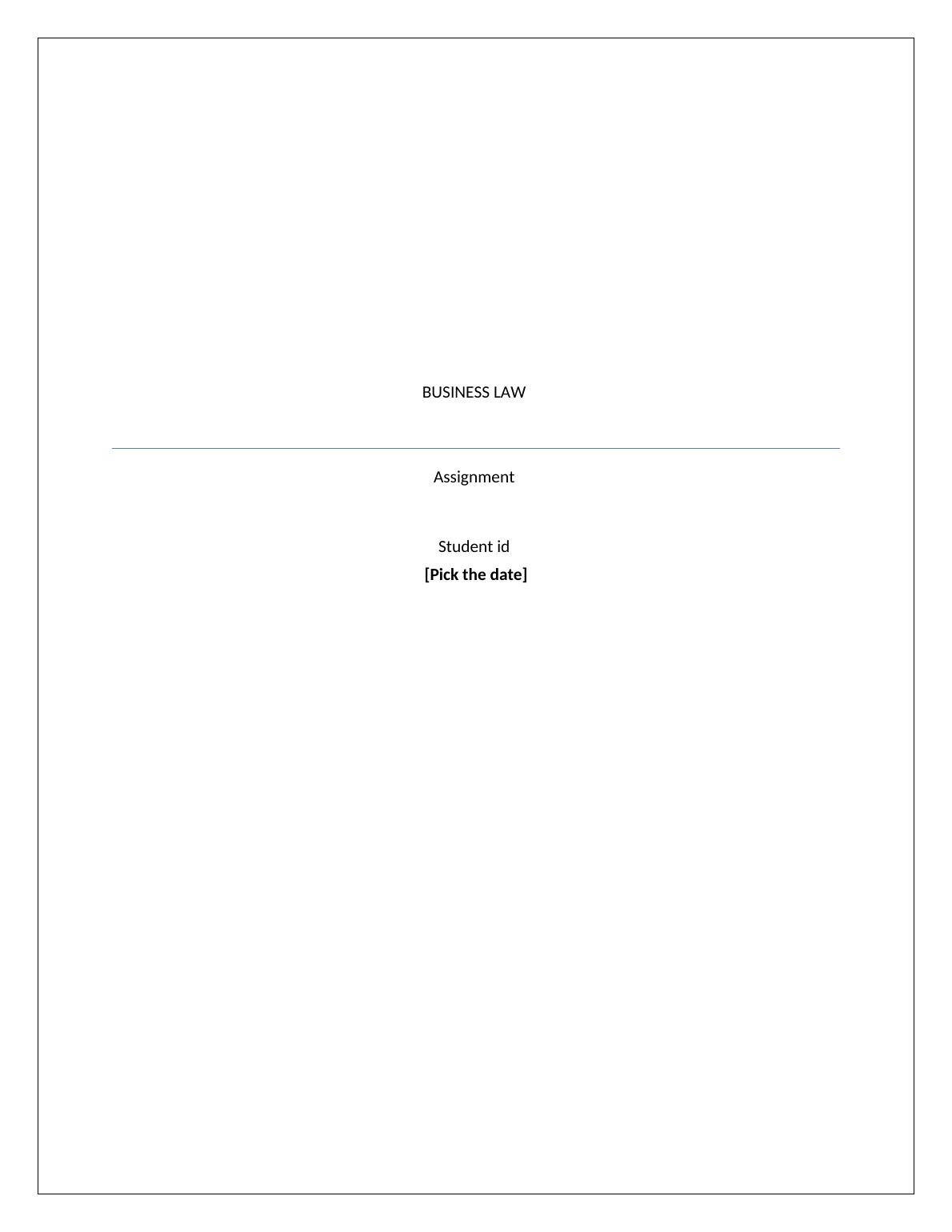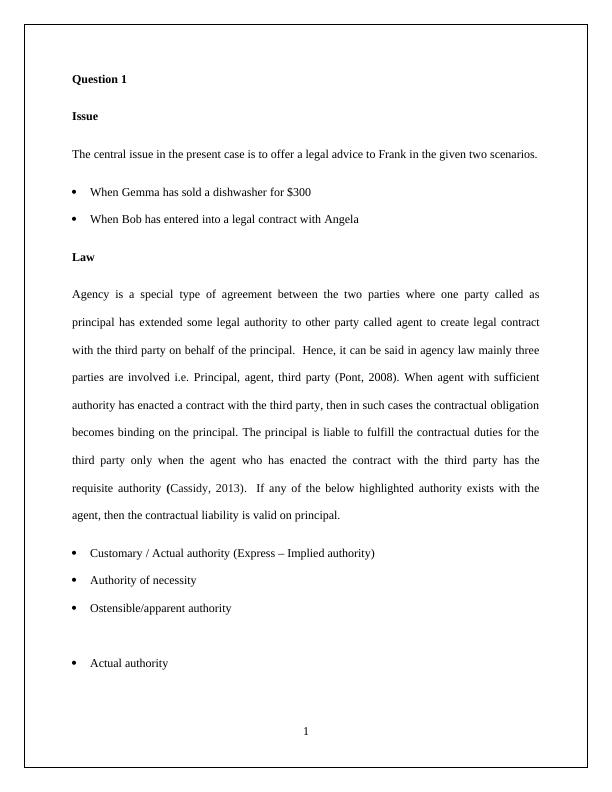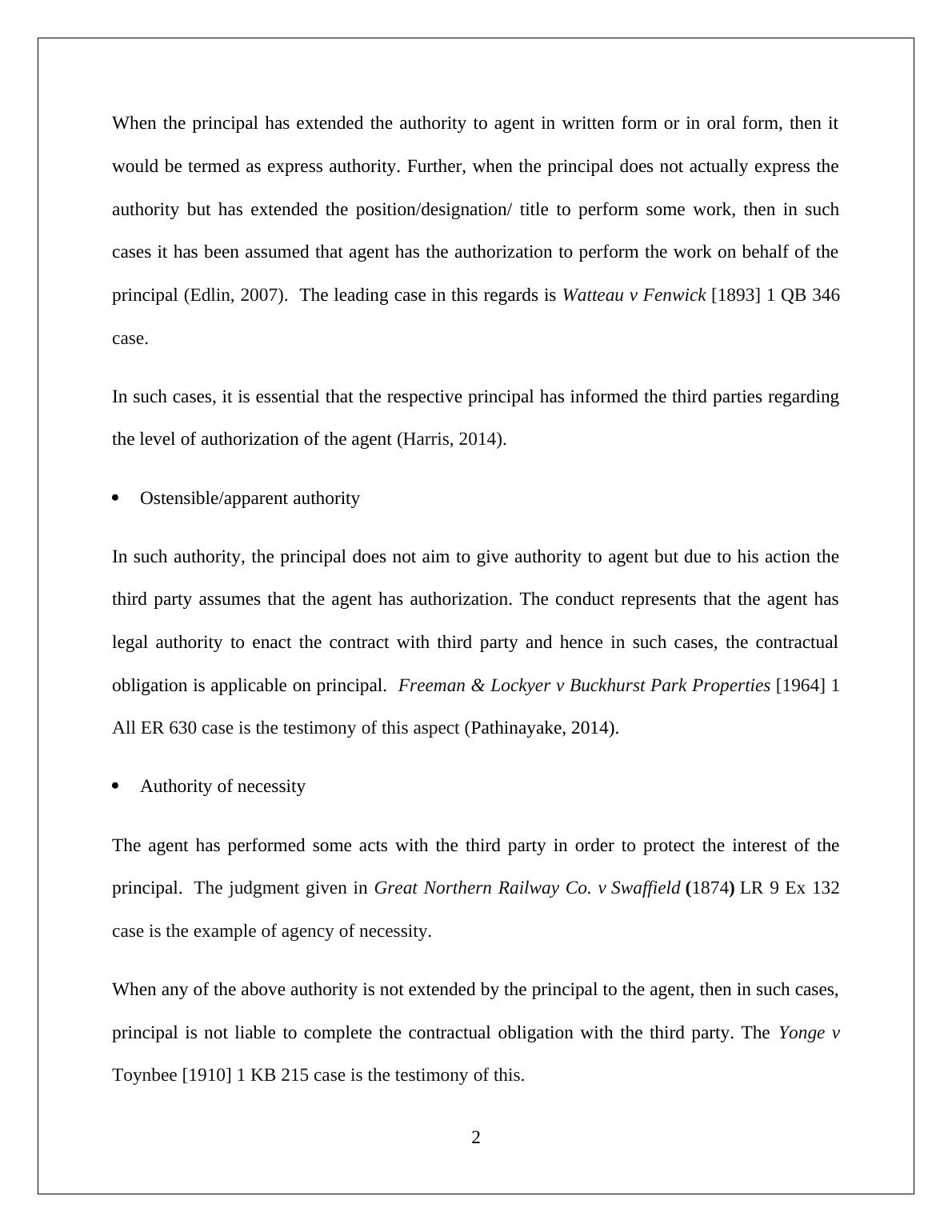Business Law Assignment : Case Study
Added on 2019-10-31
7 Pages1304 Words265 Views
BUSINESS LAW Assignment Student id [Pick the date]

Question 1 Issue The central issue in the present case is to offer a legal advice to Frank in the given two scenarios.When Gemma has sold a dishwasher for $300When Bob has entered into a legal contract with Angela LawAgency is a special type of agreement between the two parties where one party called asprincipal has extended some legal authority to other party called agent to create legal contractwith the third party on behalf of the principal. Hence, it can be said in agency law mainly threeparties are involved i.e. Principal, agent, third party (Pont, 2008). When agent with sufficientauthority has enacted a contract with the third party, then in such cases the contractual obligationbecomes binding on the principal. The principal is liable to fulfill the contractual duties for thethird party only when the agent who has enacted the contract with the third party has therequisite authority (Cassidy, 2013). If any of the below highlighted authority exists with theagent, then the contractual liability is valid on principal. Customary / Actual authority (Express – Implied authority)Authority of necessity Ostensible/apparent authority Actual authority 1

When the principal has extended the authority to agent in written form or in oral form, then itwould be termed as express authority. Further, when the principal does not actually express theauthority but has extended the position/designation/ title to perform some work, then in suchcases it has been assumed that agent has the authorization to perform the work on behalf of theprincipal (Edlin, 2007). The leading case in this regards is Watteau v Fenwick[1893] 1 QB 346case. In such cases, it is essential that the respective principal has informed the third parties regardingthe level of authorization of the agent (Harris, 2014).Ostensible/apparent authority In such authority, the principal does not aim to give authority to agent but due to his action thethird party assumes that the agent has authorization. The conduct represents that the agent haslegal authority to enact the contract with third party and hence in such cases, the contractualobligation is applicable on principal. Freeman & Lockyer v Buckhurst Park Properties[1964] 1All ER 630 case is the testimony of this aspect (Pathinayake, 2014).Authority of necessity The agent has performed some acts with the third party in order to protect the interest of theprincipal. The judgment given in Great Northern Railway Co. vSwaffield(1874)LR 9 Ex 132case is the example of agency of necessity. When any of the above authority is not extended by the principal to the agent, then in such cases,principal is not liable to complete the contractual obligation with the third party. The Yonge vToynbee[1910] 1 KB 215 case is the testimony of this. 2

End of preview
Want to access all the pages? Upload your documents or become a member.
Related Documents
Business Lawlg...
|6
|1208
|371
Legal Assignment Solution (Doc)lg...
|8
|1630
|271
Business and Corporations Law (pdf)lg...
|7
|2362
|22
Business Lawlg...
|6
|1276
|420
Business and Corporation Law : Assignmentlg...
|7
|2441
|572
Business Law: Agency Relationship and Liability of Principallg...
|11
|3050
|300
